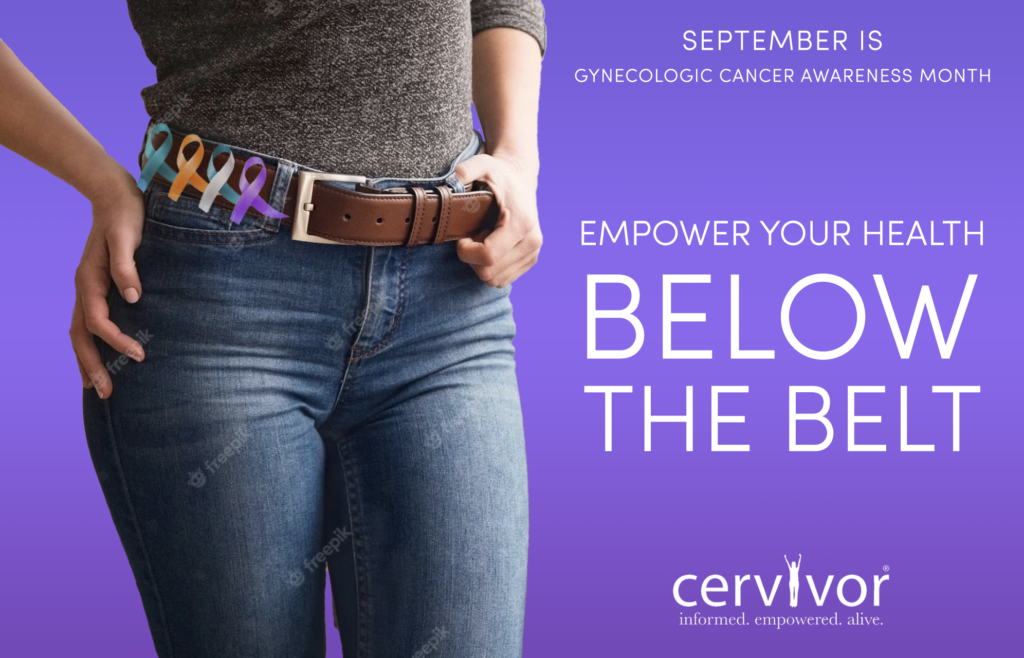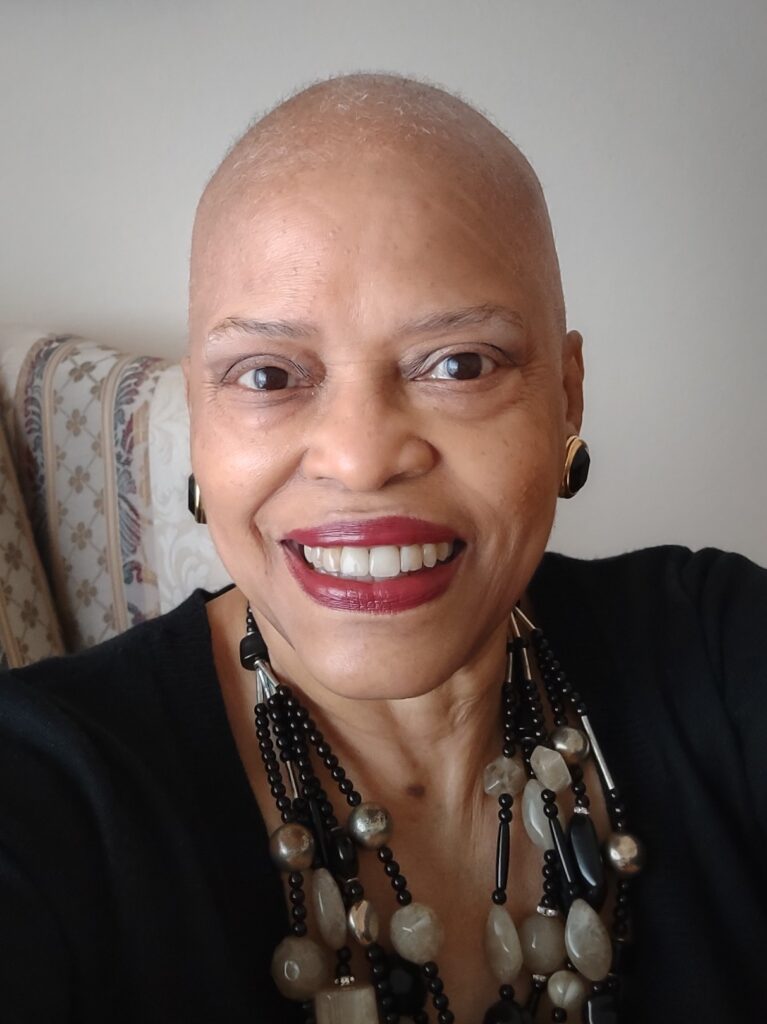As fall quickly approaches, we find ourselves entering a month of profound significance for Cervivor and all those impacted by gynecologic cancers. September is not just another month; it’s Gynecologic Cancer Awareness Month, a time dedicated to raising awareness, educating, and advocating for those affected by gynecologic cancers. It’s a month where we come together to make our voices heard and support one another in our journey towards better health and well-being.
Did You Know?
Gynecologic cancers, which include cervical, ovarian, uterine, vaginal, and vulvar cancers, impact the lives of thousands of women and individuals with female reproductive systems each year. The statistics may be alarming, but they underscore the importance of dedicating a month to raise awareness and promote early detection:
- In the U.S. alone, an estimated 98,000 women will be diagnosed with a gynecologic cancer each year.
- An astonishing 30,000 lives will be taken by the disease.
- Gynecologic cancers are often diagnosed at advanced stages, making early detection crucial for improved outcomes.
- Each of these cancers comes with its unique set of challenges, but they all share the common thread of affecting the lives of those we care about.
Our Role in Gynecologic Cancer Awareness Month
Cervivor plays a pivotal role in the fight against gynecologic cancers. We are not just a support network; we are a community that empowers survivors, advocates for change, and educates the public about the importance of prevention and early detection. Here’s how we’re making a difference:
- Support and Empowerment: Cervivor provides a safe space for survivors to share their stories, connect with one another, and find solace in knowing they are not alone. Through our online platforms, events, and resources, we empower individuals to take control of their health and well-being.
- Education and Awareness: Our organization is dedicated to spreading awareness about gynecologic cancers, with a special focus on cervical cancer. We offer educational resources, campaigns, and outreach initiatives to ensure that women and individuals are informed about the risks, prevention, and early detection methods.
- Advocacy: Cervivor is at the forefront of advocating for policy changes and improved access to healthcare services. We work tirelessly to promote HPV vaccination, regular screenings, and equitable healthcare for all. Become a partner in purpose with Cervivor today!


How Can You Get Involved?
- Share Your Story: Your story is a powerful tool for raising awareness. Share your journey, your triumphs, and your challenges on social media, using the hashtags: #GCAM, #Cervivor, #WeAreCervivor, #EndCervicalCancer.
- Educate: Take the time to educate yourself and others about gynecologic cancers. Knowledge is the first step towards prevention and early detection.
- Support Cervivor: Consider making a donation to Cervivor or participating in our fundraising initiatives. Your support enables us to continue our mission to empower, educate, and advocate for those affected by gynecologic cancers.
- Join Our Community: If you or someone you know has been affected by gynecologic cancer, join our community. Together, we can make a difference and support one another in our journeys.
As we progress through Gynecologic Cancer Awareness Month, let us remember that together, we are a powerful force for change. By raising our voices, sharing our stories, and supporting one another, we can make strides in the fight against gynecologic cancers. Thank you for being a part of the Cervivor community, and for standing with us in this important cause. Stay tuned for our upcoming events and activities throughout the month of September!

